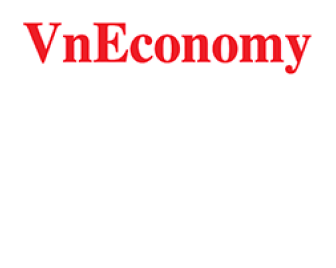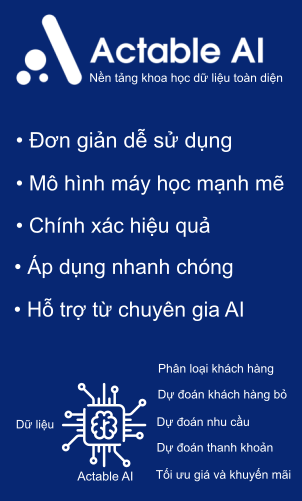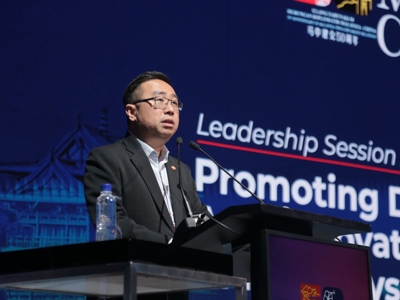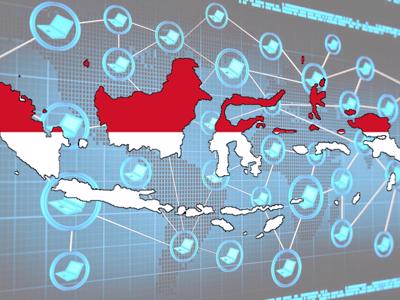Solutions to plastic pollution
Tackling the scourge of plastic pollution here and abroad will require specific and targeted financial mechanisms.

Finances count among the most pressing challenges in efforts to tackle plastic waste both in Vietnam and worldwide. A massive financial effort is indeed necessary to eradicate plastic pollution, with global investment in plastic waste management projected to eventually reach an astonishing sum.
At the “Unlocking Finance for Plastic Action in Vietnam: From Insights to Implementation” workshop, held in Hanoi recently by the Department of International Cooperation at the Ministry of Natural Resources and Environment (MoNRE) in collaboration with the United Nations Development Programme (UNDP) Vietnam through the National Plastic Action Partnership (NPAP) and the World Bank, experts argued that creative financial mechanisms are key to overcoming the plastic pollution crisis. By mobilizing resources and tapping into innovative tools like outcome-based bonds, plastic credit, and public-private partnerships (PPPs), the crucial funding needed to revolutionize waste management systems can be unlocked.
Need for financial tools
According to the United Nations Environment Programme (UNEP)’s “Drowning in Plastics - Marine Litter and Plastic Waste Vital Graphics” report, approximately 300 million tons of plastic waste are produced globally each year. Of this, about 79 per cent ends up in landfills or the natural environment, 12 per cent is incinerated, and only 9 per cent is recycled. Furthermore, every minute, around 1 million plastic drinking bottles are purchased worldwide, and up to 500 trillion single-use plastic bags are used annually.
Meanwhile, in Vietnam, according to MoNRE, approximately 1.8 million tons of plastic waste are generated annually, with 280,000-730,000 tons finding their way into the ocean. Alarmingly, only 27 per cent of this waste is recycled or repurposed by businesses and facilities.
Plastic pollution is one of the most pressing environmental challenges of our time, demanding both innovative solutions and substantial financial investment. It has been projected that, by 2040, plastic leakage into the environment will reach 30 million tons annually, with around 9 million tons entering the oceans, contaminating water ecosystems. Southeast Asia, including Vietnam, is a major contributor, accounting for about 65 per cent of global ocean plastic emissions.
Vietnam, unfortunately, ranks among the top contributors to plastic pollution. While its plastic industry contributed $17.5 billion, or 6.7 per cent, to the country’s GDP in 2019, this economic gain is overshadowed by its cost. Plastic pollution is devastating Vietnam’s cities, coastal ecosystems, and biodiversity, fueling climate change and causing economic losses. The annual loss in recyclable plastic value alone is estimated at $2.2-2.9 billion, reflecting a missed opportunity to recover and repurpose valuable resources. The country has already launched a national program for managing ocean plastic waste, with clear targets set. Achieving these ambitious goals will, however, require securing a substantial financial commitment.
According to the Organization for Economic Cooperation and Development (OECD), in its report on policy scenarios to tackle plastic pollution by 2040, addressing the scourge demands significant financial mobilization. The global investment required for plastic waste management is projected at around $2.1 trillion between 2020 and 2040.
Dr. Muthukumara S. Mani, Lead Environmental Economist for the Southeast Asia Region at the World Bank, highlighted an important issue during the fifth meeting of the Intergovernmental Negotiating Committee (INC-5) in Busan, South Korea, in late November: the critical need for effective financial mechanisms to support action worldwide.
Globally, the financial shortfall for developing a circular economy is expected to range from $426 billion to $1.2 trillion by 2040. For Vietnam, the financial gap is estimated at $28-40 per ton of collected plastic and $24-40 per ton of recycled plastic.
Dr. Mani believes that innovative financial mechanisms are essential to overcoming this challenge. “Mobilizing resources and leveraging tools like outcome-based bonds, plastic credit, and PPPs can unlock the capital required to transform waste management systems,” he said. “The World Bank is actively supporting this agenda through initiatives such as the Southeast Asia Regional Program on Combating Marine Plastics (SEA-MaP) and innovative financial instruments like blue bonds, green bonds, and plastic reduction-linked bonds. These initiatives demonstrate how targeted financing can deliver tangible environmental and economic benefits.”
Vietnam’s proactive approach
Mr. Le Ngoc Tuan, Director General of MoNRE’s Department of International Cooperation, said that in their efforts to address plastic pollution, government agencies and local authorities in Vietnam have worked closely over the years with international partners and businesses to implement programs and projects aimed at addressing the issue. Thanks to these coordinated and decisive measures, Vietnam has posted significant achievements in reducing plastic pollution and gradually improving the country’s image, moving it off the list of the world’s leading plastic polluters.
To uphold its commitment to reducing plastic pollution, Vietnam must explore financial tools to support a circular plastic economy and foster a green, sustainable future. This requires implementing financial solutions and engaging all relevant stakeholders, including government, businesses, and financial institutions, to secure necessary resources.
“In Vietnam, the investment needed to implement policies for reducing plastic pollution, alongside the adoption of circular plastic models and the acceleration of transformation in the manufacturing sector, is expected to be substantial,” he explained. “Therefore, Vietnam must proactively prepare for the next phase of the NPAP initiative, contributing to the Global Plastics Treaty and playing a key role in the global effort to create a more sustainable future for humanity.”
Commenting on Vietnam’s efforts, Mr. Patrick Haverman, UNDP Deputy Resident Representative in Vietnam, noted that the country has taken proactive steps in addressing plastic pollution, and the transition to a circular economy presents an important opportunity to further this progress. Shifting to a circular economy helps Vietnam move away from unsustainable practices, boost productivity, and enhance competitiveness.
However, he continued, significant challenges remain, especially in building fair financial mechanisms and effectively mobilizing resources to tackle plastic pollution in Vietnam. “Moreover, we need to ensure a clear financial roadmap that integrates commitments into the country’s transition plan towards a circular plastic economy,” he emphasized.
Efforts ahead
Experts at the workshop agreed that addressing plastic pollution requires a multifaceted approach involving both regional and global financial instruments. Developing countries in Asia, including Vietnam, face significant challenges in waste management, such as limited waste collection coverage and low recycling rates. For example, while Vietnam’s waste collection coverage stands at 75 per cent, the plastic recycling rate remains at just 33 per cent. Larger landfills and treatment facilities would benefit from economies of scale, reducing per unit treatment costs as capacity increases.
Key financing tools for plastic pollution management include plastic credits, which are generated through verified pollution reduction projects and can complement Extended Producer Responsibility (EPR) schemes without replacing long-term efforts. Green bonds, such as the World Bank’s $100 million bond linked to plastic reduction, have successfully funded waste collection and recycling projects in countries like Ghana and Indonesia. The International Finance Corporation (IFC) also plays a critical role by supporting investments in blue and green bonds, loans, and circular economy initiatives, as demonstrated by projects with Indorama Ventures PCL and ALBA Asia.
However, scaling investments faces challenges, including inconsistent feedstock supply, the need to formalize the informal sector, volatile pricing, a lack of policy direction, and high costs for unproven technologies such as chemical recycling and AI sorting.
To expand solid waste management systems, actions include enhancing waste collection and sorting infrastructure, developing blended finance mechanisms, and integrating financing tools like plastic credit, green bonds, and EPR schemes to mobilize resources more effectively.
In Vietnam, financing plastic waste reduction involves understanding the roles of various stakeholders and identifying both the challenges and opportunities in the endeavor. Key challenges include limited a legal framework, insufficient financial resources, weak infrastructure, low public awareness, difficulties in implementing EPR, and market barriers. There are also limited incentives for recycling and low green finance capacity. Managing environmental and social risks, especially for small businesses accessing green finance, also presents significant hurdles.
Despite these challenges, there are notable opportunities for growth. Green bonds have seen positive use, with VND6.87 billion ($274,800) issued, and green credit now accounts for 21 per cent of total loans, supported by the State Bank of Vietnam (SBV)’s green bank development scheme. To capitalize on these opportunities, it is recommended that the green finance framework be expanded to include plastic circularity, funding processes for recycling and waste management projects be simplified, and capacity built through EPR implementation,
sectoral assessments, training, and technical support. Promoting policy reforms, innovative financing tools, and technological advancements will further strengthen the sector.
Several steps need to be taken in Vietnam’s financing roadmap, such as conducting sectoral assessments of plastic waste to identify targeted investment priorities and clearly outlining the next steps for the NPAP. These should focus on expanding infrastructure for waste collection and sorting, formalizing the role of stakeholders, including the informal sector, and scaling financial resources through green bonds, plastic credit, and blended financing mechanisms. Finally, fostering multi-stakeholder collaboration is crucial to accelerating the transition towards a plastic circular economy.




















